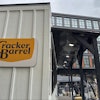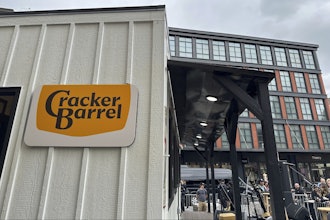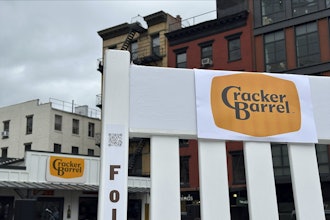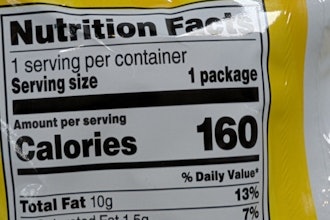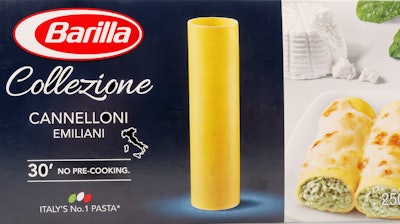
A message for food and beverage companies falsely insinuating their products’ place of origin: proceed with extreme caution, as doing so may lead to legal exposure.
This very issue is currently playing out in a federal courtroom in Northern California. There, pasta-maker Barilla America, Inc. faces a class action lawsuit by virtue of claims made on its packaging.
On its boxes of pasta, Barilla boasts it is “ITALY’S #1 BRAND OF PASTA®.” In the U.S. District Court for the Northern District of California, plaintiffs are alleging that this slogan misleads consumers into believing that Barilla’s pasta is made in Italy from Italian ingredients, when in reality the product comes from the U.S. with ingredients sourced from countries other than Italy.
The plaintiffs’ argument looks to have some legs given last month’s ruling in Sinatro v. Barilla America, Inc., keeping intact the litigation alleging false advertising. In denying Barilla’s motion to dismiss the plaintiffs’ first amended complaint, the court agreed that Barilla’s representation on its pasta boxes was likely to deceive reasonable consumers.
Notably, it was not just Barilla’s slogan that led to the court’s decision. It was also noted in the ruling that Barilla’s boxes display the colors of Italy’s national flag, reinforcing the notion that Barilla’s pasta is made in Italy. The court further pointed out that the representations on Barilla’s packaging had to be viewed in the context of the company’s long-standing marketing campaign — including on its website — emphasizing Barilla’s connection to Italy.
All of this is not to say that the plaintiffs' case is a guaranteed winner. The court’s ruling on the motion to dismiss was not a statement on the ultimate merits of the plaintiffs’ claims or the viability of class certification. As otherwise stated, the court did not find that Barilla has actually misled consumers by professing to be “ITALY’S #1 BRAND OF PASTA®,” or that the plaintiffs could successfully pursue their case as a class action. Instead, it has only been determined at the initial stages of the case — during which the court must accept as true all of plaintiffs’ factual allegations—that a plausible argument indicating deception on Barilla’s part has been stated.
Lessons Learned
So, what can food and beverage marketers take away from the court’s decision on Barilla’s motion to dismiss?
For starters, companies should be extremely careful when associating a product with a geographic origin when that product is not actually made there. For those believing they can get away with such a suggestion by adding a small disclaimer on the back or side of a product’s packaging stating the actual place of manufacture, think again. Citing a key Ninth Circuit case from 2008 called Williams v. Gerber Products, the court in the case against Barilla made clear that a disclaimer so located would not sufficiently cure a potentially misleading representation on the front of a package. As such, if a brand’s historical origin is material to its marketability, but the product in question is not made there, marketers should consider a conspicuous disclaimer on the front of the packaging to avoid legal exposure for false advertising.
Companies should also be conscious of the extent to which their marketing efforts—both on-label and off—collectively suggest that their product comes from somewhere it does not. When all is said and done, a company whose product marketing mentions or references a country or region in which its product is not made must walk a fine line between invoking the spirit or feeling of that place and implying that the product is actually made there. In the litigation now facing Barilla, as well as other recent false advertising cases where courts have denied motions to dismiss, courts have shined a light on a range of representations, words and symbols that reinforce the false impression of a product’s origin. These include a country’s flag, words or characters in a foreign language, and multiple country-specific statements on packaging, websites and social media.
While it remains to be seen whether the plaintiffs in Northern California are able to prove the merits of their claims against Barilla or even obtain class certification, the fact that they survived a motion to dismiss means Barilla must now engage in costly discovery and continue to litigate (or decide to settle). Marketers hoping to avoid this fate and steer clear of the financial and reputational costs of a geographic origin false advertising claim would be wise to review their on-label and off-label representations.
Alexander Safyan is a counsel at Michelman & Robinson LLP.

